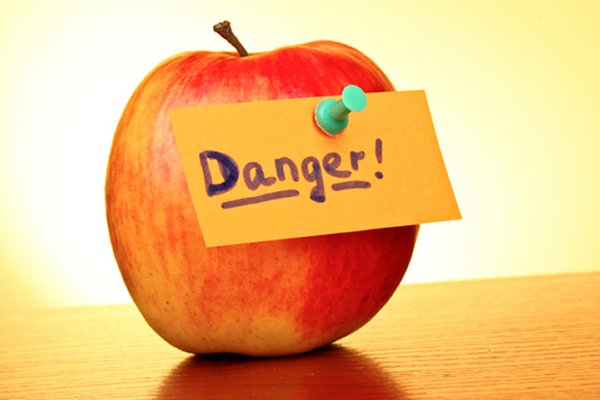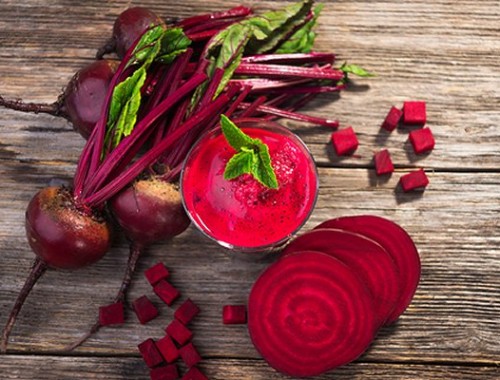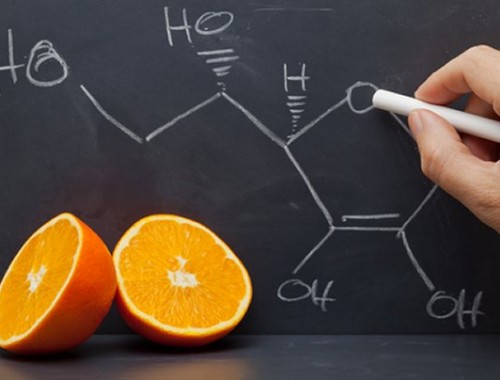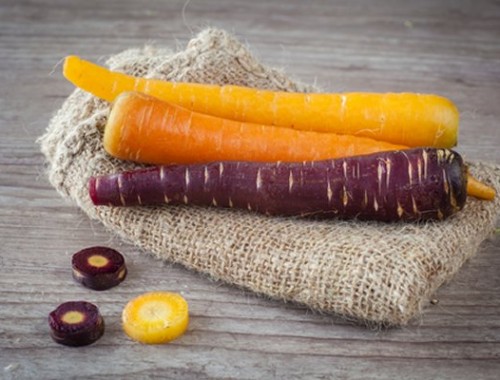Occasionally I get asked the question: Is Juicing Dangerous? I reply with the answer: It can be, but so can riding a bike!
You wouldn’t ride a bike without first being aware of the dangers and you’d probably consider the risks when choosing where to cycle and if you should wear a cycle safety helmet. It’s the same with juicing, be aware of the potential dangers and remain healthy when juicing!
Juicing really is a great way to optimize your health, lose weight and detoxify but read on to educate yourself about some of the potential health risks of juicing.
Some of the dangers like blood sugar spikes are only likely to affect with existing conditions like diabetes. Other’s like food borne illness can affect us all. By being aware and following some simple guidelines, people can enjoy juicing as part of a healthy diet.
Limit Produce with High Sugar Content for Diabetes
Juicing can pose a problem for people with diabetes. When eating whole fruit, the fiber that is consumed helps to slow the ingestion of the sugars which reduces the risk of elevated blood sugar levels. People with diabetes should watch the amount of sugar they consume from juicing fruits and some vegetables that are high in natural sugars. A large apple for example may contain up to 30 grams of carbohydrate.
The good news is that many vegetables are low in sugar. So juicing more of these vegetables instead of fruit will help avoid blood sugar spikes. Juicing mainly vegetables is also better for your body since vegetables are more nutrient dense than fruits on the whole. But watch out when juicing carrots as one medium sized carrot may contain nearly 6 grams of carbohydrate.
Wash Foods to Prevent Illness
Microorganisms that can be present on fresh produce such as E. coli and salmonella can cause potentially dangerous food borne illnesses. Washing the fruit and vegetables thoroughly before juicing reduces the risk of contracting a food borne illness from fresh juice. The cutting board and knife needs to be clean as well. If unwashed produce is laid on the cutting board, the cutting board needs to be washed again.
Another way to reduce the risk of food borne illness is to drink fresh juice immediately after it is prepared. When fresh juice is not consumed immediately, the juice can become a breeding ground for bacteria. People may be tempted to make extra juice and store it for later, but this is not recommended due to the risk of bacterial contamination.
Be Aware of Pesticide Contamination
Many people aren’t aware that much of the produce they are buying contains traces of pesticides. Unless you’re buying everything organic that is. Conventionally grown produce is often sprayed with multiple pesticides and herbicides. And it’s not as simple as washing them off as they may have been absorbed below the skin. Some fruits and vegetables require more spraying and so are more likely to be contaminated.
I should state that consuming fruits and vegetables is incredibly beneficial to health and the health risks from pesticide contamination is small by comparison. But it’s something you want to be aware of so that you can make better decisions when purchasing your produce for juicing.
The Environmental Working Group (EWG) releases a guide to pesticides in produce each year. It’s sensible to take a look and make sure you’re buying organic produce for at least the worst offenders. Of course it makes sense to buy everything organic but cost is often an issue for people. The two worst offenders in 2013 were apples and celery, so buying these organic makes a lot of sense!
Genetically Modified Produce (GMO)
Much of the produce you buy has a little sticker on it. On each sticker there is a 4 or 5 digit code called a price look-up code (PLU code). It tells you if the produce is organic, conventionally grown or genetically modified (GMO). Read more about PLU codes here.
If the code is 5 digits long and starts with an 8 it means it’s 100% positively been genetically modified. This produce is best avoided as the long term health effects of GMOs are unknown. It’s shocking that this produce is being sold at all with so little research.
If the code is 4 digits long and starts with a 3 or a 4 it’s conventionally grown and may contain pesticides. Confusingly there’s also a chance that it’s been genetically modified. Use caution when buying this produce and check the EWG guide to pesticides in produce to decide if to replace with organic if cost is an issue. If cost isn’t an issue buy everything organic!
If the code is 5 digits long and starts with a 9 it’s organic and pesticide free. It’s not been genetically modified and is likely to be more nutrient dense than it’s conventionally grown counterpart.
Large Amounts of Goitrogens Can Worsen Hypothyroidism
Eating large amounts of raw vegetables that contain goitrogens can hamper a thyroid that is functioning below normal. Juicing large quantities of brussels sprouts, bok choy, collard greens, broccoli, cauliflower, horseradish, cabbage, kale, turnips, and other cruciferous vegetables can make hypothyroidism worse.
Oxalic Acid and Kidney Health
Oxalic acid binds with calcium to form oxalate crystals that can cause irritation in the kidneys. Parsley, spinach, bananas, beets, chard and star fruit are some of the foods that contain oxalic acid.
For most people, oxalic acid consumption is not a problem. However, people with certain health conditions should avoid foods that can produce oxalate crystals. Gout, osteoporosis, kidney disorders and rheumatoid arthritis can be aggravated by oxalate crystals.
Oxalic acid can cause kidney stones even in people who have no underlying kidney disease. Therefore, people should consume foods containing oxalic acid in moderation and always drink plenty of water to help flush out excess oxalic acid.
Stomach Distress and Sorbitol
Sorbitol is a natural sugar in some fruits. This sugar is indigestible and causes stomach discomfort and diarrhea in some people. Peaches, pears, sweet cherries, apples, and prunes contain sorbitol.
Some Other Side Effects of Juicing
Some side effects of juicing are harmless such as red urine from juicing beetroot. Even with these concerns about juicing, the nutrients obtained by juicing far outweigh the risks.
Juicing can provide many vitamins that fight disease and support good health. While people with medical conditions may need to be wary of juicing certain foods, juicing is an easy way to maintain health and decrease the risks of cancers and cardiovascular disease.







No Comments